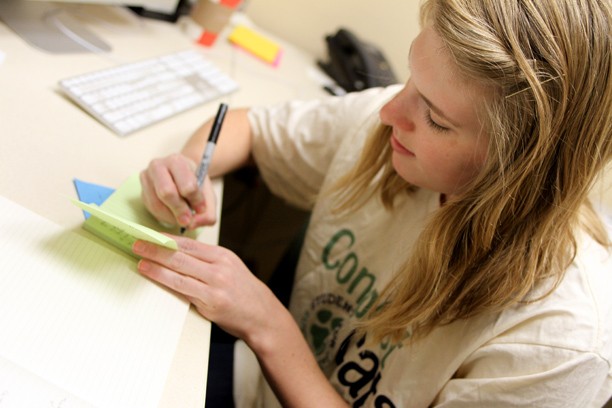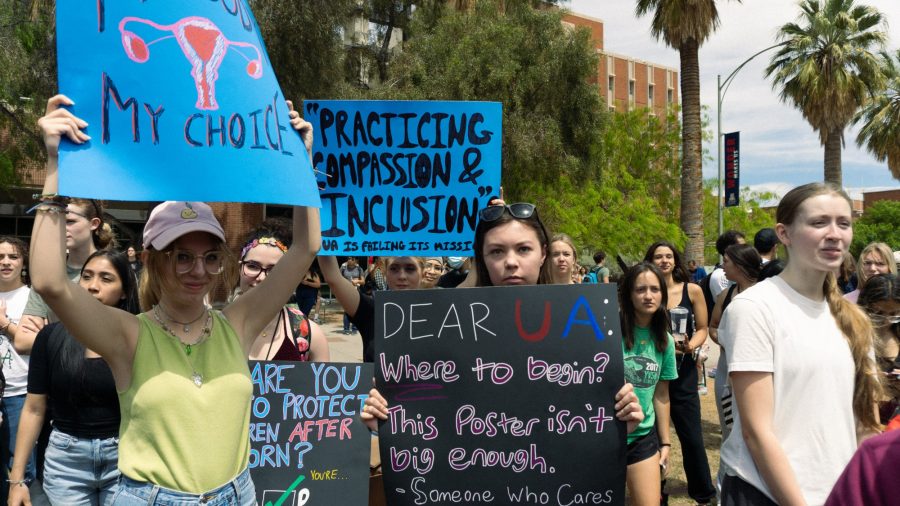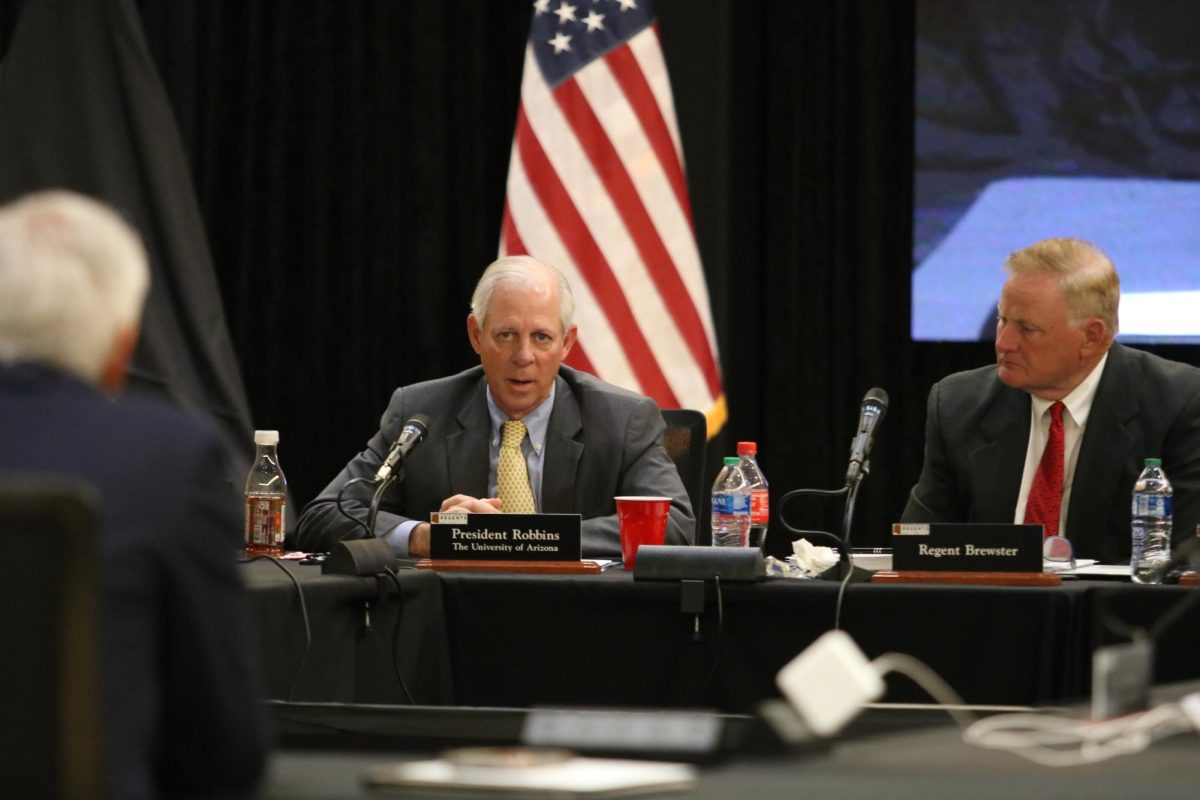The UA, along with several schools, grocery stores and restaurants, has joined in a challenge aimed at lowering food waste during the course of a year.
The Food Recovery Challenge, coordinated by the U.S. Environmental Protection Agency, seeks to lower food waste by at least five percent this year.
Compost Cats, a student-run group on campus, will take part in the challenge in order to reach their goals and gain recognition on campus from students who would like to become more involved.
Rachel Maxwell, a graduate student in environmental science and a co-founder of Compost Cats, said that progress on this challenge has already started by setting up bins inside and outside of restaurants around the Student Union Memorial Center. This makes composting and recycling more convenient for students, according to Maxwell.
Dining services will also hire two new employees who will take into account how much food is being made and how much is wasted, so that the student unions will receive more economical amounts of food to help cut down on waste, she added.
“I think the biggest thing is going to be pretty much education, but now that dining services is really interested in it as well, I think that’s going to be the biggest help,” Maxwell said.
Stickers, table toppers and flyers are being distributed around campus to help educate students about Compost Cats and its goal to reduce food waste.
Chester Phillips, a doctoral student supervising the project, said one ton of waste is collected from the student union in a week. He added that it costs $80 per ton to throw it all away. The waste that is collected is taken to a composting farm at the West Campus Agricultural Center every Tuesday and Friday morning.
Phillips said 10 percent of families in Arizona are food insecure, which means they do not know when they will get their next meal. He added that 35 to 40 million pounds of fruits and vegetables are deemed unsuitable and are thrown away. The fruits and vegetables that are not rotting, as long as they don’t have far to travel to a store, would be fine for selling, he added.
“We saw all the compost [at the farm] and it seems like it’s effective in general,” said Katie Netzel, a senior studying creative writing and linguistics and an employee at Sabor.
Netzel said it is harder to get results when students are expected to sort out the materials themselves, because most of them seem disinterested.
“It would be more effective if the compost bin was where the employees had access,” Netzel said.
Taeler Motta, an accounting freshman, said that the pictures on the bins make it easy to recycle and compost. She added that she tries to recycle regularly, whether in the student union or at home.
“I just think people don’t know enough about the differences between composting and trash,” Motta added.
Composted items are paper, horse manure, tree scraps, food waste and animal bedding from the university labs. Phillips said 3,000 pounds of animal bedding material is collected each week, adding to the efforts of the program.
Business partners involved in the compost project include Beyond Bread, Whole Foods Market, Cellar Bistro, Sabor, Subway, Chipotle and many others.









